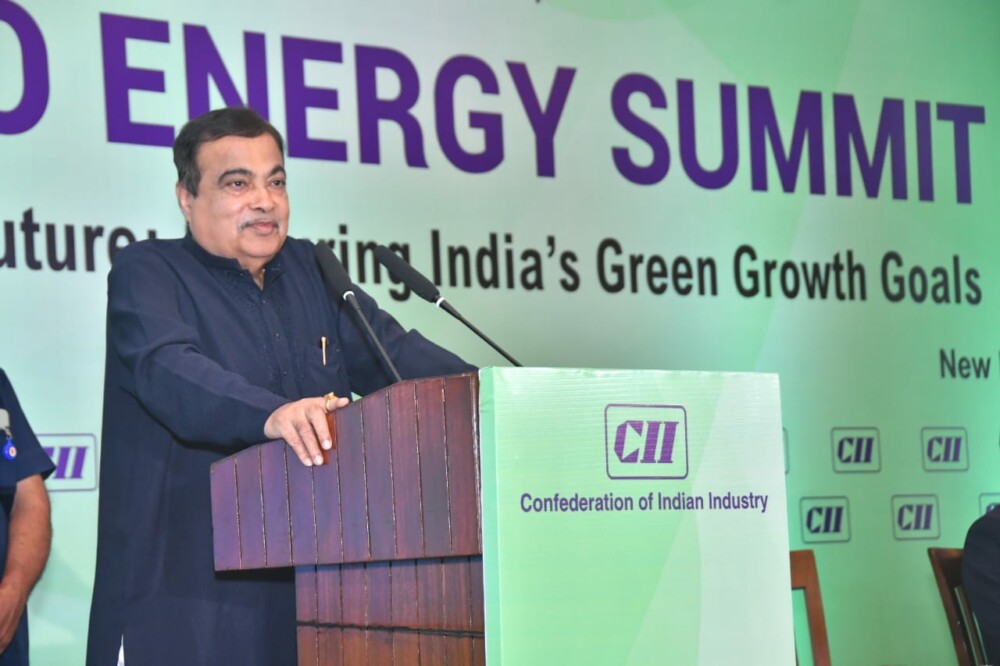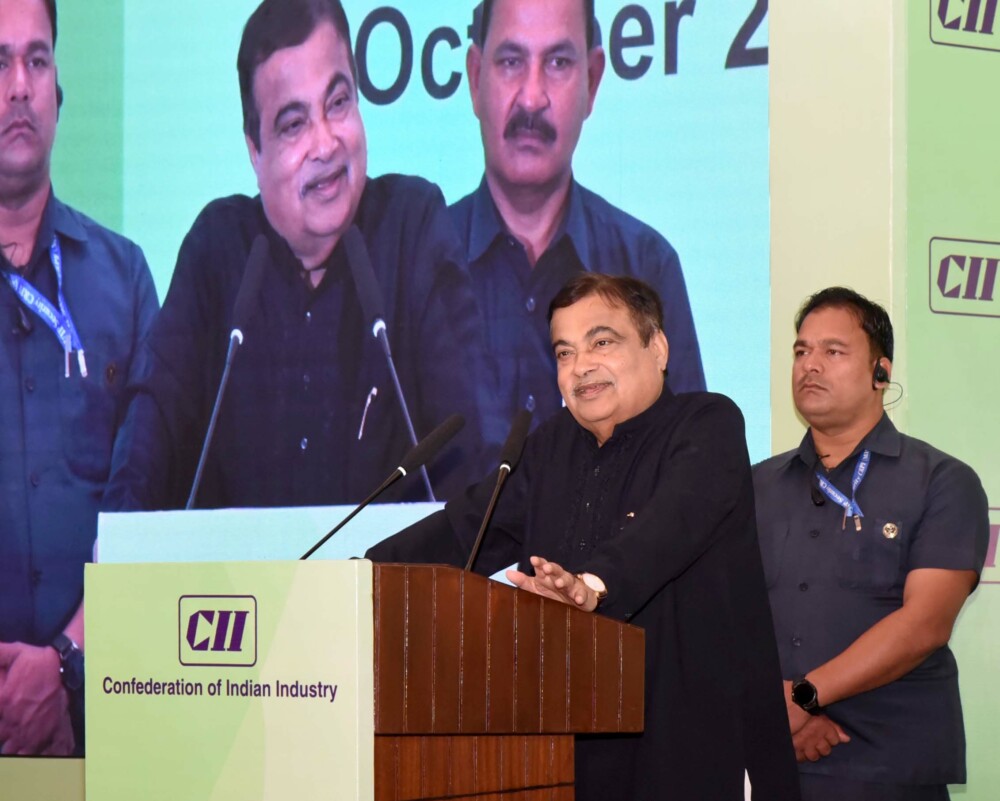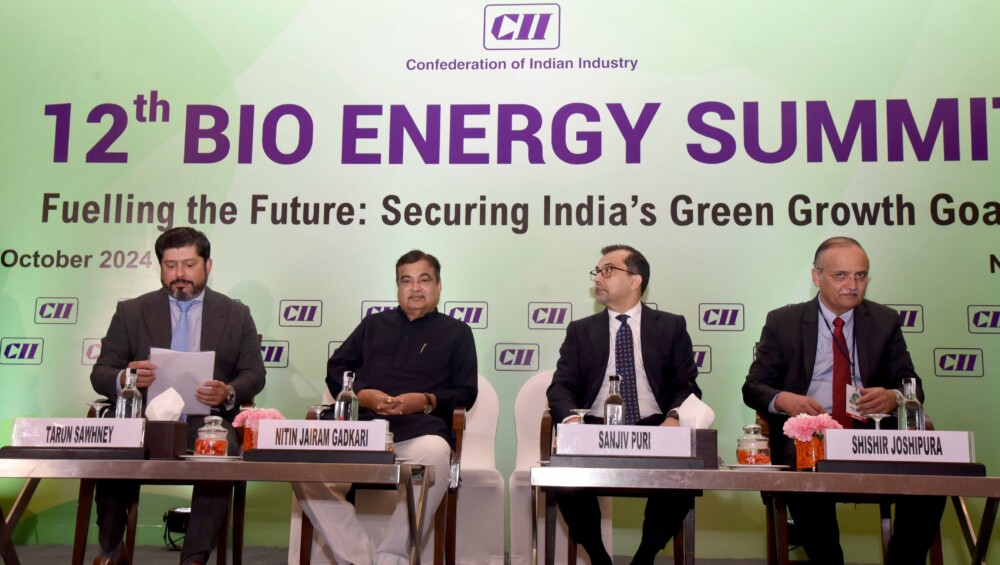
Nitin Gadkari Addresses 12th CII Bioenergy Summit in Delhi
NEW DELHI : Union Minister for Road Transport and Highways Shri Nitin Gadkari, reaffirmed the government’s commitment to advancing ethanol blending and biofuel initiatives at the 12th CII Bioenergy Summit 2024, themed “Fuelling the Future – Securing India’s Green Growth Goals”. The event took place in New Delhi.
Highlighting the success of ethanol blending in India, Shri Gadkari noted that ethanol blending in petrol has surged from 1.53% in 2014 to 15% in 2024, with a target to reach 20% by 2025. Research is underway to explore blending 15% ethanol in diesel as well, as part of the government’s strategy to reduce fossil fuel dependency.
Speaking on the occasion, Union Minister emphasized the creation of an ethanol ecosystem, which includes the establishment of 400 ethanol pumps by Indian Oil Corporation in four states—Karnataka, Tamil Nadu, Uttar Pradesh, and Maharashtra. Discussions with leading automakers ongoing, with plans to launch flex-engine cars that run on ethanol. Similarly prominent manufacturers of two-wheelers are preparing to launch ethanol-powered bikes once the infrastructure is ready, he added.
“We are fast-tracking efforts to increase ethanol production and distribution in these four key states,” said Shri Gadkari. He further added that these initiatives align with India’s broader biofuel goals, positioning the country as a leader in sustainable energy solutions.


Shri Gadkari also discussed the importance of leveraging waste-to-energy technologies, especially in the production of bio-CNG from rice straw, which has proven viable across 475 projects, with over 40 already operational in states like Punjab, Haryana, Western Uttar Pradesh, and Karnataka. The conversion ratio of rice straw to CNG stands at approximately 5:1 in tonnes. Union Minister called for further research into efficient biomass sources and cost-effective transportation of biomass.
Addressing the environmental challenge of stubble burning in Punjab and Haryana, Shri Gadkari praised Indian Oil’s Panipat plant, which is converting agricultural waste (parali) into biomass. “At present, we are able to process one-fifth of the parali, but with proper planning, we can significantly reduce the seasonal air pollution caused by stubble burning,” he said.
Research by the Central Road Research Institute (CRRI) on bio-bitumen production also promises to reduce India’s dependence on imported bitumen, further contributing to the country’s green growth agenda.
Shri Nitin Gadkari stressed the urgency of reducing India’s annual fossil fuel import worth ₹22 lakh crore, particularly amidst global geopolitical uncertainties. “Biofuel is key to India’s energy self-reliance, boosting the agricultural economy, and ensuring prosperity for our farmers,” he said.
He concluded by emphasizing the transformative potential of the biofuel sector in expanding the role of farmers from “Annadata” (food-giver) to “Urjadata” (energy-giver), “Indhandata” (fuel-giver), and ultimately, “Hydrogen-Data” (Hydrogen-giver). The Minister congratulated CII on organising the summit.

